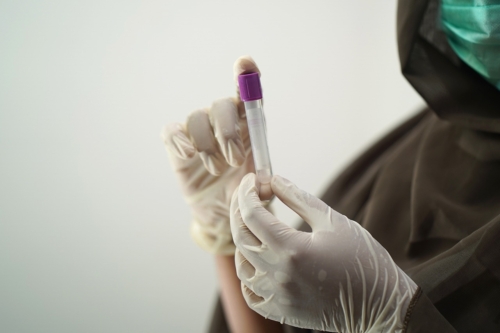UK: The hostile environment policies have a devastating impact on migrant access to healthcare

As the world celebrated the World AIDS Day on December it is imperative to look at how Zimbabweans are living with disease in the UK and Diaspora at large.
In the United Kingdom, many Zimbabweans are being left behind in the UK’s response to the disease, despite being disproportionately affected by HIV.
Georgina Mandebvu is a Zimbabwean nurse living with HIV. When she arrived in the UK she was already widowed.
Her husband died in a car accident while she was in Zimbabwe. She has a child aged 15 but who was of poor health.
In 2015 Georgina who was ten years in the UK fell very ill. She was admitted to Luton and Dunstable hospital. She tested HIV positive. Her son was also brought in the same hospital very sick. He too tested positive.
The two were diagnosed with HIV and were diagnosed late, putting them more at risk of becoming seriously ill.
Most people don’t know it when they’ve been infected with HIV. But they may develop symptoms within 2 to 4 weeks a!er they’ve gotten the virus. This is when the body’s immune system puts up a fight. It’s called acute retroviral syndrome or primary HIV infection. HIV infection happens in three stages. Without treatment, it gets worse over time and eventually weakens the immune system.
The only way you can know for sure if you have HIV is to get tested. Although the virus can develop symptoms, they’re not a reliable way to tell if you’re infected. In fact, some people won’t have any symptoms at all. So even if you don’t have any of the typical signs of an infection, you should always get tested if you think you are at risk.
A number of major barriers for migrants trying to access HIV testing and treatment in the UK includes lack of access to appropriate information about healthcare entitlements; migrants’ poor understanding of healthcare entitlements; ‘hostile environment’ policies; and restrictions on being able to work or claim financial support.
The National Aids Trust, funded by Trust for London, interviewed migrants living with HIV in the UK and found that they are being left behind in the UK’s response to HIV, despite being disproportionately affected by HIV.
Those living with AIDS while in diaspora face a number of major barriers trying to access HIV testing and treatment, including:
lack of access to appropriate information about healthcare entitlements; migrants’ poor understanding of healthcare entitlements and fear and confusion over possible charging for NHS services;
Hostile environment’ policies – such as data sharing between the NHS and Home Office – deterred people born abroad from accessing care and contributed to their late HIV diagnoses; restrictions on being able to work or claim financial support for some migrants forced some migrants into destitution, unable to afford food or travel to appointments.
The UK Health Security Agency does not consider migrants a key population and collect and publish more granular data on specific groups, including reporting in the published HIV data tables and annual report on all communities with over 500 cases of new transmissions in the last five years HIV is a public health challenge which disproportionately affects migrants in the UK.
Despite this, there is currently no shared understanding of the policies and interventions needed to combat HIV in the context of migration. London is where the highest proportion of migrants living with HIV access care.
However, there is also wider relevance and learning for the whole of the UK and much of the data provided is UK-wide.
To end new transmissions of HIV by 2030, a UK goal, must make progress for all population groups, including migrants. In order to do this, all migrants in the UK should have access to the HIV prevention, treatment and care they need.
Migrants must be considered a key population in the UK’s response to HIV by the Government, UK Health Security Agency and wider healthcare and HIV sectors.
Taguta Matambo was among the 62 percent of all new HIV diagnoses in the UK (including people previously diagnosed abroad). When he arrived in the UK he settled in an area where many Zimbabweans were staying.
He started a relationship with Mavis who had left her family in Zimbabwe.
After some time Mavis became infected but without realising it. Within a month the broke up as Mavis’s family was coming to join her.
Mavis’s husband was infected the moment he became intimate with Mavis.
In the meantime Taguta had moved on and found himself a new girlfriend whom he infected as well.
Because Mavis was always busy and limiting her husband on the pleasures of the velvet cake the husband got himself a girlfriend.
The net became more and more intense and intricate
There was infections and re-infections. Within six months the number of Zimbabweans in one community infected with HIV was alarming. In the meantime the migrant community was not receiving treatment.
Zimbabweans in the UK are not very promiscuous but the HIV rate is ravaging.
People who are diagnosed late have a 10-fold risk of mortality within one year of diagnosis, are more at risk of ill-health and this also increases the risk of onward transmission.
While the quality of care and support they received through HIV clinics and support services is the best in the world, there are barriers to accessing primary care services through GPs, as well as concerns about understanding of HIV among GPs.
The devastating impact of hostile environment policies on migrant access to healthcare is also startlingly clear.